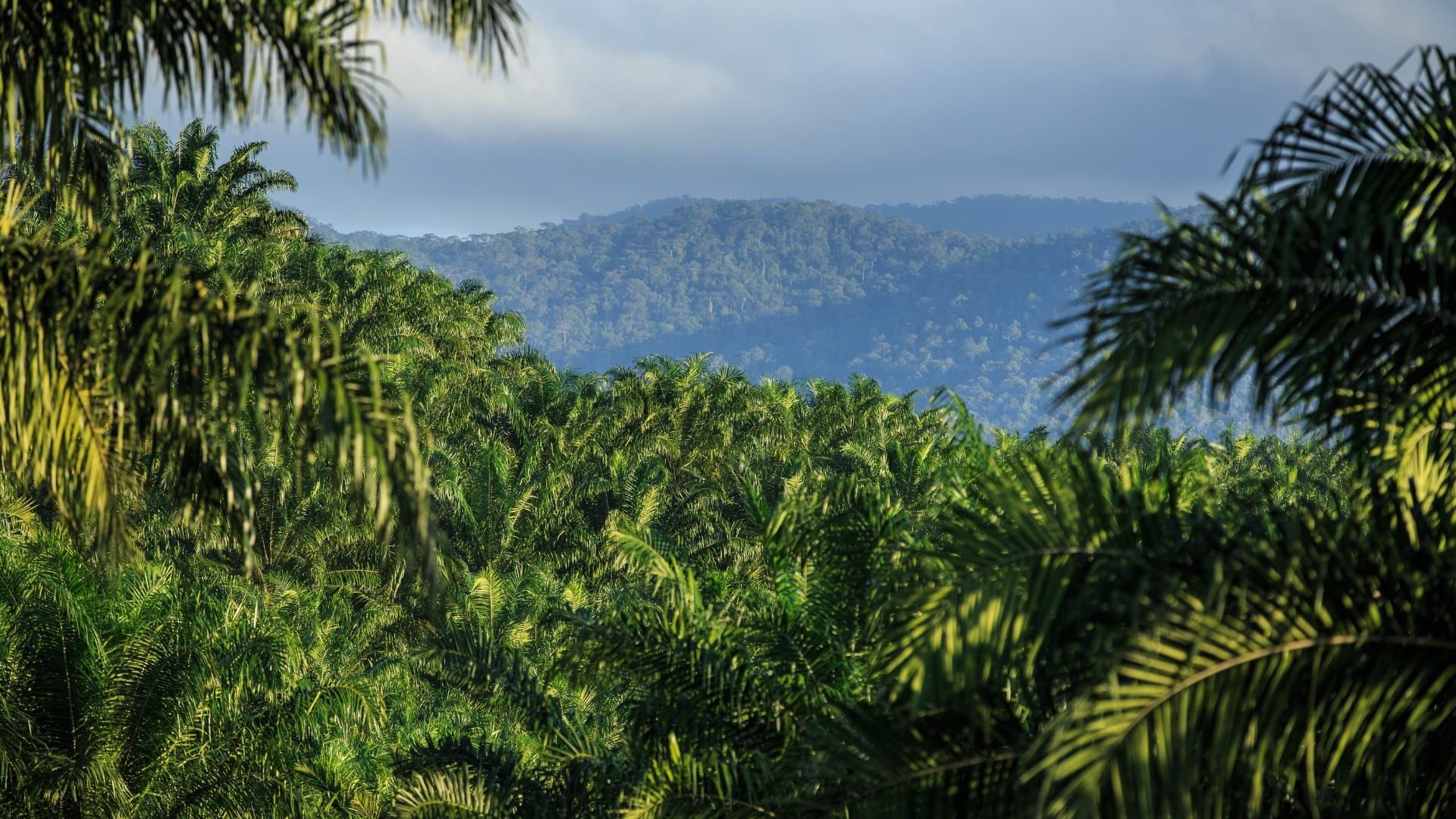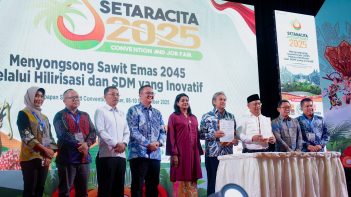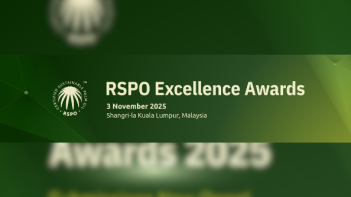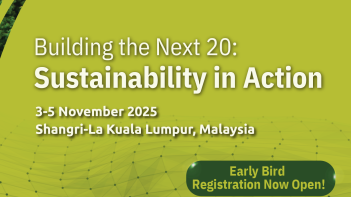BANGKOK, 6 NOVEMBER 2019 – Today, the Roundtable on Sustainable Palm Oil (RSPO) concluded its 17th Annual Roundtable Conference on Sustainable Palm Oil (RT17) and 16th Annual General Assembly (GA16), where members made a bold commitment to supporting greater inclusion of smallholders into the sustainable palm oil supply chain, through the adoption of the RSPO Independent Smallholder (ISH) Standard.
Themed ‘A Shared Responsibility: Converting Commitments into Action’, the conference provided an apt platform to set in motion the recently endorsed requirements and the implementation of Shared Responsibility rules for members. While this is not a new concept for RSPO, Shared Responsibility reinforces the Code of Conduct for members and extends the reach of the 2018 Principles and Criteria (P&C).
“Through the new rules for Shared Responsibility, I expect all members to actively participate and work together to increase the demand for sustainable palm oil with mutual accountability throughout the supply chain,” said Datuk Darrel Webber, Chief Executive Officer of RSPO.
Dato Carl Bek-Nielsen, RSPO Co-Chair and Chief Executive Director of United Plantations Berhad added, “Finally, the rules of shared responsibility will balance the scales and the downstream players will join us on this journey – not just in promoting the production of sustainable palm oil but equally as important – the uptake of sustainable palm oil. I’m hopeful, and see this as the cement in a brick wall, without which, the wall will crumble.”
The newly adopted RSPO ISH Standard implements simple, straightforward requirements and cost-effective tools that consider diversity, capacity, and incentives, whilst ensuring that core sustainability criteria are upheld. Girish Deshpande, Global Surfactants Business Planner and Palm Sustainability Leader of Procter & Gamble UK, said, “This standard allows us to achieve our ambition of being a force for good and a force for growth, driving livelihood improvement for smallholders.”
RT17 also saw the launch of a new initiative, the RSPO Smallholder Trainer Academy (STA) that aims to significantly increase the resources available for smallholders globally. By adopting a ‘train-the-trainer’ approach, RSPO hopes to reach larger numbers of small scale oil palm farmers through agricultural best practice training. “We can’t leave smallholders behind. Supporting them with training is vital to make sustainable palm oil production inclusive,” said Narno Sayoto Irontiko, Chairman of FORTASBI (Association for Smallholder Farmers).
Throughout the three-day conference, other industry-current topics were discussed including, ‘DNA and Blockchain Technology in Palm Oil Traceability’, ‘Our Shared Planet: The Human-Wildlife Conflict,’ as well as ‘The Next Decade for Palm Oil and Sustainable Palm Oil’. In addition to that, the keynote speech was delivered by Mr Sunny George Verghese, the Co-Founder and Group CEO of Olam International Limited. He spoke about future food sustainability through his paper, ‘Feeding 9.5 Billion People Sustainably by 2050’.
Prior to the conference, RSPO, the People’s Movement to Stop Haze (PM Haze) and GIZ Thailand co-hosted the inaugural Asian Youth Summit, bringing together 50 young people from China, India, Indonesia, Malaysia, Singapore, and Thailand to engage in critical discussions on sustainable palm oil: “Engaging youth has always been part of our advocacy strategy. We believe that growing an effective grassroots movement will increase the adoption of sustainable palm oil and prevent transboundary haze in the region” said Benjamin Tay, Executive Director, PM Haze.
The inaugural RSPO Excellence Awards – evaluated by a panel of independent judges – celebrated the efforts of RSPO members for their efforts on Conservation, Community Impact, Human and Labour Rights, Smallholders and Outstanding Achievement. More on the awards can be found here and more on the award winners, can be found here.
About RSPO:
The Roundtable on Sustainable Palm Oil (RSPO) was formed in 2004 with the objective of promoting the growth and use of sustainable oil palm products through credible global standards and engagement of stakeholders. RSPO is a not-for-profit, international, membership organisation that unites stakeholders from the different sectors of the palm oil industry including oil palm producers, palm oil processors or traders, consumer goods manufacturers, retailers, banks and investors, environmental or nature conservation NGOs, and social or developmental NGOs.
This multi-stakeholder representation is mirrored in the governance structure of RSPO such that seats in the Board of Governors, Steering Committees and Working Groups are fairly allocated to each sector. In this way, RSPO lives out the philosophy of the “roundtable” by giving equal rights to each stakeholder group, facilitating traditionally adversarial stakeholders in working together to reach decisions by consensus, and achieving RSPO’s shared vision of making sustainable palm oil the norm. The seat of the association is in Zurich, Switzerland, while the secretariat is currently based in Kuala Lumpur with satellite offices in Jakarta (ID), London (UK), Zoetermeer (NL), Beijing (CN) and Bogotá (CO).
For further information, please contact:
| RSPO Communications Team | |
Keep reading
RSPO accepted in the Netherlands as a private control system for EUDR

RSPO x JaSPON Conference and Member Engagement Forum 2025 Spotlights Japan’s Sustainability Success and Market Growth
Call for Expression of Interest: Independent Investigation of a Complaint
Call for Expression of Interest: Mexico National Interpretation Task Force for 2024 RSPO Principles and Criteria (RSPO P&C) and Independent Smallholder (ISH) Standard

RSPO–APKASINDO Partnership to Boost Inclusive Growth, Certification, and Market Access for Oil Palm Smallholders

Open Letter to COP30 President: Integrating Forests and Biodiversity: A Policy Central to Paris Agreement Success

Bridging the Auditing Divide: Key Takeaways from the RSPO Assurance Forum 11

Extension of RSPO Excellence Awards 2025 Submission Deadline!





